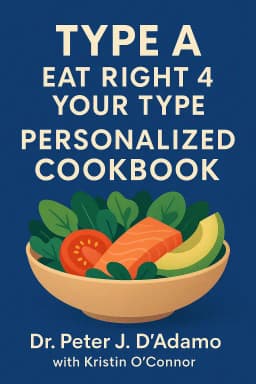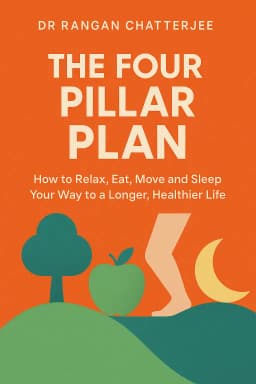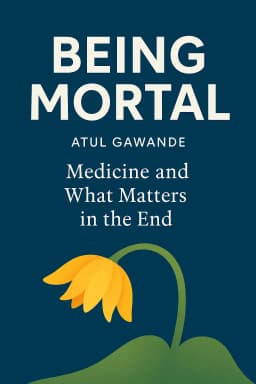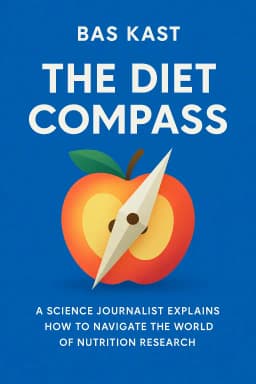
Personalized Podcast
Golden Hook & Introduction
SECTION
Orion: eck, I want to start with a question that sounds simple but is surprisingly complex. When you think about your daily shower, do you see it as a health necessity or a cultural ritual?
eck: That’s a great question. I guess I’ve always seen it as a necessity, right? It’s just what you do to be clean, to be healthy, to be presentable in the world. But framing it as a ritual… that makes me pause. A ritual is something we do based on belief, not always on fact. I’ve never really questioned the belief behind it.
Orion: Exactly. And that's the rabbit hole we're diving into today, inspired by Dr. James Hamblin's book, "Clean: The New Science of Skin." Because what if I told you that the belief that we need to shower daily, that we need to scrub away our body's natural state, is barely a century old? That for most of human history, we were all, by today's standards, pretty "unclean," and that might have actually been better for us.
eck: Okay, now you have my full attention. So this isn't just about soap, it's about the entire story we tell ourselves about cleanliness.
Orion: Precisely. And for a history enthusiast and analytical thinker like you, this book is a goldmine. It reveals this incredible clash between our biology and our culture. So today we'll dive deep into this from two powerful perspectives. First, we'll travel back in time to uncover how the very idea of 'body odor' was invented to sell soap.
eck: Invented? Wow.
Orion: Oh yes. And then, we'll zoom in with a microscope to explore the invisible ecosystem on our skin and how our modern habits might be doing more harm than good. The core of our podcast today is really an exploration of the profound conflict between our culturally invented ideas of 'cleanliness' and our biological reality.
Deep Dive into Core Topic 1: The Marketing of 'Dirty'
SECTION
Orion: So let's start with that history, because it's not what we think. The book argues that for most of human history, people just... smelled like people. Sure, there were ritualistic washings, like with the Aztecs, but the idea of being pathologically afraid of your own scent is brand new. The real shift happens in the late 19th and early 20th centuries.
eck: The Industrial Revolution. A period of huge social change. I'm guessing this is where commerce comes in.
Orion: You've nailed it. And the book gives the most perfect, almost sinister, case study: a soap called Lifebuoy, made by the Lever Brothers. In 1894, it was introduced as a health soap, made with carbolic acid, which was a known disinfectant. It was marketed as a defense against germs. But its big break came from a moment of pure marketing genius.
eck: I’m ready for the "smoking gun," as you called it.
Orion: Here it is. The story goes that in 1926, the brother of the company's president was in a locker room after a golf game and was disgusted by the smell. This sparked an idea. Lifebuoy launched a new ad campaign. At first, it was for "Perspiration Odors." But that wasn't scary enough. So they shortened it, creating a new, clinical-sounding, terrifying acronym: "B.O." Body Odor.
eck: Oh, that is brilliant. They medicalized a normal human function. "Body Odor" sounds like a diagnosis, something you need to treat.
Orion: Exactly! The ads were ruthless. They showed beautiful young women being ignored at parties, men losing promotions, all with whispers in the background: "Does she have B.O.?" They didn't sell soap; they sold fear. Fear of social rejection, of being the person in the room everyone is whispering about. And it worked. Sales quadrupled in four years. They literally invented a social anxiety and then sold the cure in a red bar.
eck: That's a classic playbook, isn't it? It’s not just about soap. It's about creating an insecurity, then positioning your product as the only solution. It reminds me of how other industries, maybe even in the early days of processed foods, created a 'problem' of time and convenience that they then solved with their products. It's a form of social engineering.
Orion: It is. And it created this arms race. Other companies jumped in. Palmolive started marketing a "schoolgirl complexion." Listerine, which was originally a surgical antiseptic, was rebranded to fight "halitosis," another scary medical term for bad breath. Suddenly, your natural state was a social liability.
eck: And it becomes a self-perpetuating cycle. Once that norm is established, you have to participate, or you risk the very social rejection the ads warned you about. It's fascinating and deeply unsettling to think that a habit I perform every single day is rooted not in health, but in a marketing campaign from the 1920s.
Orion: And what's wild is that this marketing-driven war on 'dirt' and 'odor' had a target we didn't even know existed at the time. And that brings us to our second, microscopic perspective: the unintentional war on our skin's microbiome.
Deep Dive into Core Topic 2: The War on Our Second Genome
SECTION
eck: Okay, so this is where my interest in nutrition kicks in. I'm hearing "microbiome" and I'm immediately thinking of the gut. The idea that our bodies are complex ecosystems, not just sterile machines.
Orion: That is the perfect analogy. The book calls the microbiome our "second genome." Just like your gut, your skin is teeming with life. Trillions of bacteria, fungi, and even mites, all living in a complex, balanced ecosystem. And for a long time, our approach has been, as Hamblin puts it, a "scorched-earth" policy. We just try to kill everything.
eck: Which, as we're learning with antibiotics and the gut, can have disastrous consequences. You wipe out the good with the bad.
Orion: Precisely. And the book presents this incredible real-world experiment to prove it: a study comparing the Amish of Indiana to the Hutterites of South Dakota. Now, these two groups are genetically very similar, they both emigrated from Europe, they have similar diets, they don't smoke. But there's one key difference in their lifestyles.
eck: Let me guess. It has to do with their exposure to "dirt."
Orion: You're on the right track. It's their relationship with the farm. Amish families live on single-family farms, and their homes are right next to the barns. From infancy, their kids are exposed to animals, to soil, to a huge diversity of microbes. Hutterites, on the other hand, live communally, but their farming is industrialized and separate from their living quarters. Their homes are much more like modern, suburban homes.
eck: So you have a perfect control group. Same genetics, different microbial exposure. What were the results?
Orion: The results were stunning. The researchers, led by Erika von Mutius, found that Amish children had dramatically lower rates of asthma and allergies—about 5% compared to over 20% in Hutterite children, which is closer to the U.S. national average. They analyzed the dust in Amish homes and found it was loaded with endotoxins—fragments of bacteria—at levels seven times higher than in Hutterite homes.
eck: So the "dirty" dust was actually acting like a training ground for their immune systems.
Orion: It was a boot camp for their immune systems! This is the core of the "Hygiene Hypothesis." The idea is that our immune systems need to be educated by early and diverse microbial exposure to learn the difference between a real threat, like a pathogen, and a harmless one, like pollen or a peanut. By living in hyper-clean, sterile environments, we're essentially sending our immune systems to school without any teachers. They get bored, they get twitchy, and they start attacking things they shouldn't.
eck: This is fascinating. It's the exact same conversation we're having about the gut microbiome. The idea that hyper-sterilized, processed food is starving our internal ecosystem... it seems we're doing the same thing to our external one. We're treating our skin like a sterile countertop instead of a living garden.
Orion: A living garden is the perfect metaphor. And when you use harsh, antibacterial soaps every day, you're not just weeding, you're carpet-bombing the entire garden.
eck: So, does the book suggest we should all go roll in some dirt? I mean, what's the practical application here?
Orion: (laughs) Not exactly. It's not about being dirty, it's about being thoughtful. It's about targeted hygiene. Wash your hands, absolutely. That's one of the greatest public health interventions in history. But do you need to use an antibacterial soap to scrub your entire body twice a day? Probably not. You might be disrupting an ancient, protective ecosystem that's been with us for millennia.
Synthesis & Takeaways
SECTION
Orion: So when you put these two ideas together, it's a powerful revelation. On one hand, we have this very recent, historically invented concept of "dirty" and "B.O." that was created to sell us products.
eck: A cultural construct, basically.
Orion: Exactly. And on the other hand, we have the biological reality that our bodies are superorganisms, covered in a diverse ecosystem of microbes that we need for a healthy, functioning immune system. And our modern habits, driven by that cultural construct, are directly at odds with our biology.
eck: It seems like the core message is a shift in mindset. Moving away from a mindset of 'elimination'—kill all germs, strip all oils—to one of 'cultivation.' How do we cultivate a healthy ecosystem on our skin, just like we think about cultivating a healthy one in our gut?
Orion: That's it perfectly. The book isn't asking you to stop showering. It's asking you to be a more conscious historian and biologist of your own body. To understand the forces that have shaped your habits.
eck: I think that's a really empowering takeaway. It's not a prescription, it's a prompt for critical thinking. Maybe the actionable advice for our listeners is just to pick one product you use every single day—your soap, your deodorant, your shampoo—and ask: 'Why do I really use this? Is it for my health, or is it because of a story I've been told for the last hundred years?'
Orion: A fantastic question to end on. It's not about finding the right product, but about asking the right questions. eck, thank you for helping us unpack this.
eck: This was fascinating. It's given me a whole new perspective on my morning routine.









